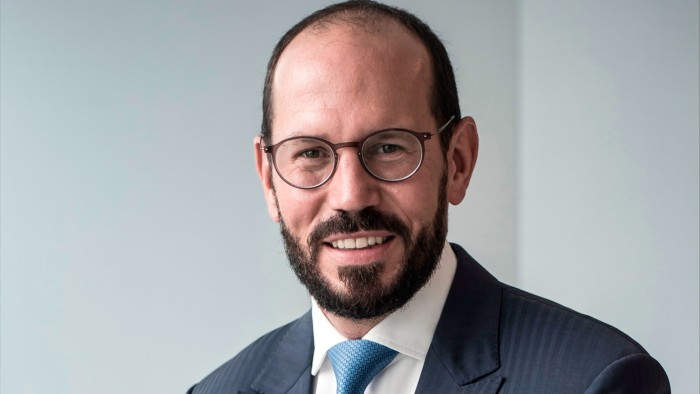Large, loosely-explained payments to a third-party intermediary hired to facilitate business in Africa did not raise “red flags” at Trafigura, its chief financial officer told a Swiss court trying the commodity trader for bribery on Thursday.
Pierre Lorinet, who is not a defendant in the case, appeared as a witness on behalf of Trafigura, which Swiss prosecutors accuse of having inadequate controls in place to stop serious acts of corruption.
The case, the first time a natural resources trader has been put on trial in Switzerland, the industry’s main global hub, concerns Trafigura’s lucrative push into Angola between 2009 and 2011.
Switzerland’s federal prosecutor last year charged the company and its former chief operating officer Michael Wainwright of paying more than €5mn of bribes, facilitated by intermediaries, to an Angolan government official in exchange for oil bunkerage and shipping contracts worth more than $143.7mn in profits.
At the centre of the case are contracts and payments between DT Trading, Trafigura’s jointly-owned African subsidiary, Consultco, an intermediary run by a former Trafigura trader Thierry Plojoux, and Wyland, an offshore corporate shell, the legal beneficiary of which prosecutors allege was the Angolan government official Paulo Gouveia Junior.
Prosecutors further allege that an individual known as H, another former Trafigura employee — who the court heard had been, in his own words, called “Mr Non-Compliant” by Trafigura’s former boss, Claude Dauphin — acted as an arms-length consultant to oversee the mechanics of the scheme.
Dauphin died in 2015 and is not a party in the case. His heirs have accused Swiss prosecutor’s of scapegoating him.
Lorinet told the panel of judges at the Swiss federal criminal court in Bellinzona that Trafigura had robust compliance and risk checks in place at the time, in line with legal requirements and often ahead of those elsewhere in the industry.
He said: “Claude [Dauphin] clearly indicated that [compliance] was a zero tolerance issue . . . it was important for the company that the people in the most important sectors of the company spent time on these subjects and showed and indicated that this was a completely real programme whose aim was to limit risk”.
There was nevertheless always a “balance” to strike, he added.
“There are many risks in our businesses and compliance is just one of them . . . there is always a balance to be struck between risk management and the ability to operate, because if you want the perfect system, everything stops. Crossing the road is a risk.”
Shown a spreadsheet of payments to Consultco and invoices for large payments of money to the company, labelled additional service fees, Lorinet said such payments were not unusual. Trafigura had a well-established relationship with Consultco.
“If [these payments] are in line with the contractual agreements, I don’t see why there would be a red flag specifically related to these payments . . . they are in line with a signed agreement that has been validated by the legal department, by the trader, by the boss of the business et cetera.”
During the period, Trafigura was making as many as 200 payments a day group-wide, a third of which were for more than $500,000, Lorinet said.
Prosecutors allege Consultco made onward payments to Wyland as part of a secret agreement established between senior Trafigura executives and Gouveia in Geneva. Gouveia would go on to grant valuable contracts to DT Trading.
It was not practical, Lorinet said, to monitor exactly what Consultco was doing with the funds Trafigura paid it and whether this complied with Trafigura’s expectations and legal policies.
“We don’t necessarily always have control over the use of the funds we pass on . . . It [would be] a bit like going to see an employee and asking what they’ve done with their salary . . . there’s a limit to this exercise.”
Trafigura eventually decided to include the right to audit third party intermediaries in their contractual agreements with them, Lorinet said, but he could not remember when exactly.
As former Trafigura employees, Consultco’s head Plojoux and H, the financial consultant, were thought to be reliable individuals the company could trust, Lorinet said.
“[Consultco] was an entity with which we had worked on several occasions in West Africa, in Angola. Thierry [Plojoux] had been a trader at Trafigura and had particular expertise in Africa . . . capable of developing business and activities there . . . it was quite logical because he’s someone who can be trusted completely . . . he knows our internal procedures and the way we operate.”
Asked why H had made notes on his phone about Dauphin calling him “Mr Non-Compliant”, Lorinet said he had no comment to make: “I don’t know what he was thinking when he said those words.”
H, the Swiss prosecutor said, acted as a “financial controller” for Trafigura who could make sure Consultco directed money for acts of bribery as intended.
In a note recovered from his phone, apparently drafted as an aide-memoire ahead of a meeting with Dauphin, H outlines complaints about leaving Trafigura and acting for the company in an external capacity, under encouragement from Wainwright and Dauphin.
“You said I was one of the family like Mike [Wainwright],” one bullet point notes.
Another states: “You said I would be doing the company a big service to take the role.”
Wainwright, who took the stand on Tuesday and Wednesday for the trial, also said he did not recognise the descriptions in the notes nor understand why H had made them.



